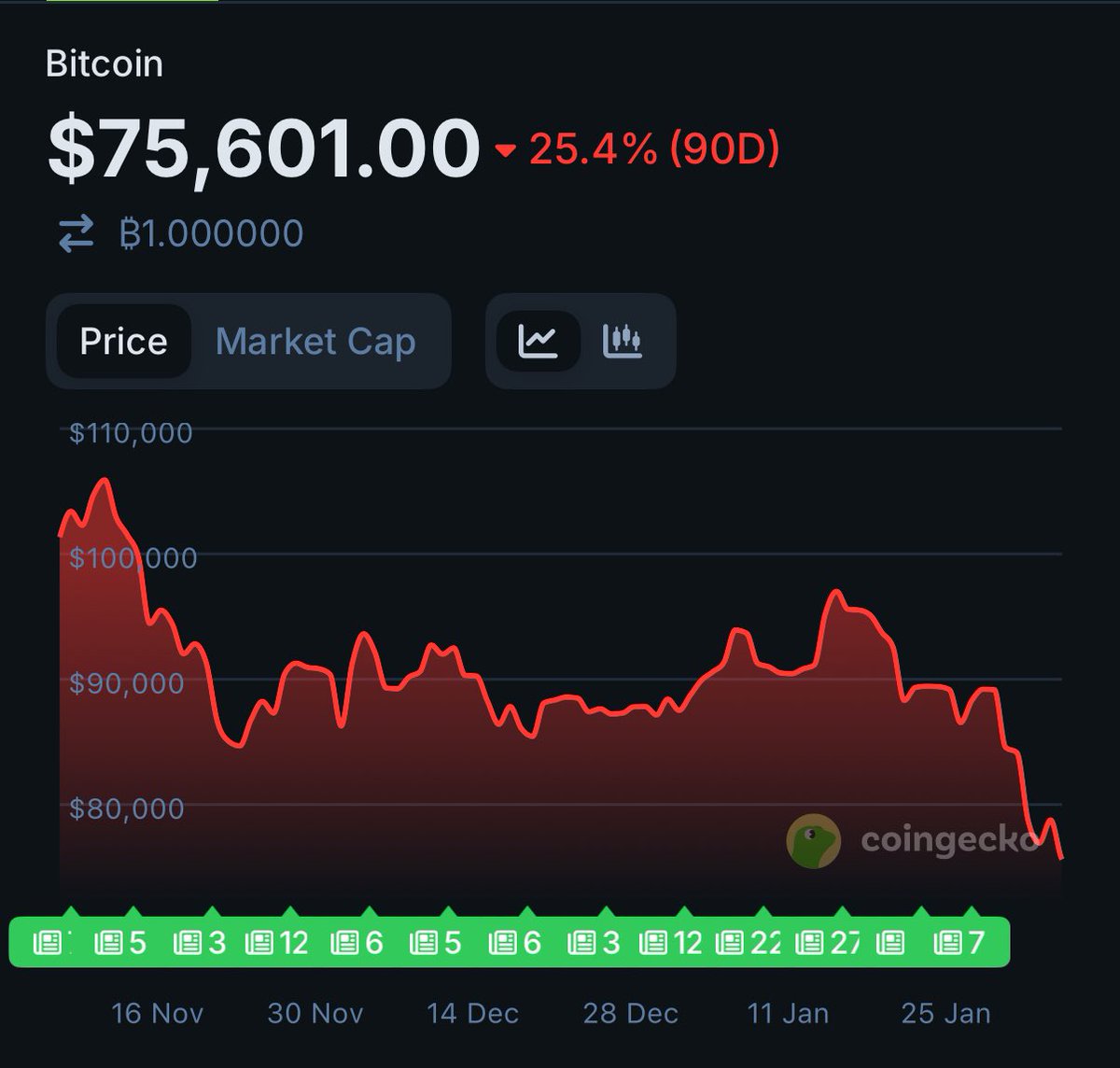Topic Background

Alex Svanevik 🐧
Crypto Newbie
1h ago
Artificial intelligence is driving down software prices,
...which in turn compresses the valuation multiples of tech stocks,
...This means a reduction in the wealth of people in the tech industry,
...This means that with less wealth, tech professionals will be less able to pursue cryptocurrencies,
Is that so?


Rekt Capital
Crypto Newbie
1h ago
I share Bitcoin and altcoin price analysis in my newsletter every Monday, Wednesday, and Friday.
Over 86,000 people read my newsletter for practical guidance to better understand and navigate the cryptocurrency market.
Click here to subscribe for free:
#BTC #Crypto #Bitcoin

DANNY-OF-WEB3 🧸 🦇🔊
Crypto Newbie
3h ago
Honestly, I think…
If you really want to succeed long-term in this field, you must learn to trade; it's the most fundamental skill in cryptocurrency.
If you've been following me these past few days, you'll have noticed that almost all the content on my page is about "trading." Trust me, you don't always have to wait for TGE (the token exchange) to survive; it should just be icing on the cake for your existing portfolio.
Master trading skills, and you can achieve financial freedom!

Blockchain scanner
Crypto Newbie
3h ago
🔔Trump Advisor Opposes Clauses Targeting the Trump Family in the CLARITY Act
According to Mars Finance, on February 4th, Patrick Witt, Trump's digital asset advisor, stated that the White House will not accept the Cryptocurrency Market Structure Act (CLARITY Act) which contains clauses targeting Trump. Witt called the early drafts of the bill's ethical provisions completely outrageous and explicitly stated that "no clauses targeting the president personally or his family members will be allowed." The CLARITY Act is currently stalled due to several issues, with Democrats demanding a ban on senior government officials profiting from the crypto industry. Sources familiar with the matter revealed that the White House has instructed industry insiders to submit a compromise proposal by the end of February. With the midterm elections approaching, the longer the legislative process drags on, the more difficult it will be for Congress to pass the bill.









